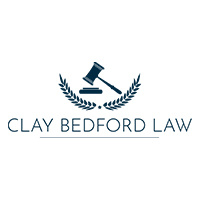Twain Harte Felony Lawyer, California
Not enough matches for Twain Harte Felony lawyer.
Below are all Twain Harte Criminal lawyers.
Clay Bedford
✓ VERIFIEDCriminal, DUI-DWI, Misdemeanor, Felony, Traffic
I am an attorney licensed to practice law in the State of California. My practice is limited to criminal defense and juvenile cases. The criminal... (more)
David L. Axelrod
Divorce & Family Law, Criminal, Civil & Human Rights, Accident & Injury
Status: In Good Standing
Patrick Greenwell
Construction, Criminal, Corporate, Contract
Status: In Good Standing Licensed: 38 Years


